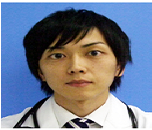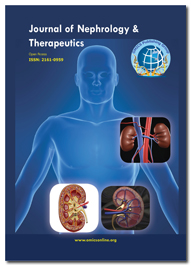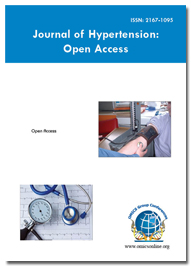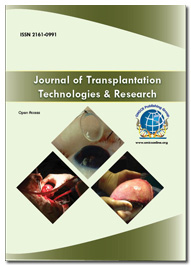Theme: Fostering Innovative Technologies and Contemporary Treatments in Nephrology
Nephrology Conference 2016
ConferenceSeries Ltd invites all the participants across the globe to attend the 10th Euro Nephrology Conference which is scheduled to organize on October 24-26, 2016 at Rome, Italy. ConferenceSeries Ltd is a pioneer and leading scientific event organizer, publishing around 700 Open access journals and conducting over 500 Scientific Meetings all over the globe annually with the support of more than 1000 scientific associations, 80,000 editorial board members, and 7.5 million followers to its credit.
Nephrology Conference 2016 is a remarkable event which brings together a unique and International mix of nephrologists and kidney specialists from leading universities and research institutions making the conference a perfect platform to share experience, foster collaboration across industry and academia, and evaluate emerging technologies across the globe.
1. Nephrology
Nephrology is a specialty of medicine that concerns itself with the study of normal kidney function, kidney problems, the treatment of kidney problems and renal replacement therapy (dialysis and kidney transplantation). Systemic conditions that affect the kidneys and systemic problems that occur as a result of kidney problems are also studied in nephrology. A physician who has undertaken additional training to become an expert in nephrology may call themselves a nephrologist or renal physician. Kidneys are essential to our health. Kidneys sit just below the rib cage, toward your back.
The kidneys, two bean-shaped organs about the size of a fist, act as a filtering system for the body. Kidneys are the organs that help filter waste products from the blood. They are also involved in regulating blood pressure, electrolyte balance, and red blood cell production in the body. Renal pertaining to the kidney; called also nephric. Renal clearance tests laboratory tests that determine the ability of the kidney to remove certain substances from the blood.
The cause of chronic kidney disease isn't always known. But any condition or disease that damages blood vessels or other structures in the kidneys can lead to kidney disease. The conditions that can damage the kidneys and cause chronic kidney disease include:
Kidney diseases and infections, such as polycystic kidney disease, pyelonephritis, glomerulonephritis, or a kidney problem you were born with.
Having a narrowed or blocked renal artery. A renal artery carries blood to the kidneys.
Long-term use of medicines that can damage the kidneys. Examples include non-steroidal anti-inflammatory drugs (NSAIDs), such as celecoxib and ibuprofen, and certain antibiotics.
3. Kidney and Bladder Stones
Kidney or bladder stones are solid build-ups of crystals made from minerals and proteins found in urine. Bladder diverticulum, enlarged prostate, neurogenic bladder and urinary tract infection can cause an individual to have a greater chance of developing bladder stones. If a kidney stone becomes lodged in the ureter or urethra, it can cause constant severe pain in the back or side, vomiting, hematuria (blood in the urine), fever, or chills.
Bladder stones are hard masses of minerals in your bladder. Bladder stones develop when urine in your bladder becomes concentrated, causing minerals in your urine to crystallize. Concentrated, stagnant urine is often the result of not being able to completely empty your bladder. If bladder stones are small enough, they can pass on their own with no noticeable symptoms. However, once they become larger, bladder stones can cause frequent urges to urinate, painful or difficult urination and hematuria.
Kidney stones (nephrolithiasis): Minerals in urine form crystals (stones), which may grow large enough to block urine flow. It's considered one of the most painful conditions. Most kidney stones pass on their own but some are too large and need to be treated.
Acute kidney injury (AKI), previously called Acute renal failure (ARF), is an abrupt loss of kidney function that develops within 7 days. Acute kidney injury (formerly known as acute renal failure) is a syndrome characterized by the rapid loss of the kidney's excretory function and is typically diagnosed by the accumulation of end products of nitrogen metabolism (urea and creatinine) or decreased urine output, or both. AKI may lead to a number of complications, including metabolic acidosis, high potassium levels, uremia, changes in body fluid balance, and effects on other organ systems, including death. People who have experienced AKI may have an increased risk of chronic kidney disease in the future. Management includes treatment of the underlying cause and supportive care, such as renal replacement therapy.
Related Competitive conferences
Chronic Kidney Diseases includes conditions that damage your kidneys and decrease their ability to keep you healthy by doing the jobs listed. If kidney disease gets worse, wastes can build to high levels in your blood and make you feel sick. You may develop complications like high blood pressure, anemia (low blood count), weak bones, poor nutritional health and nerve damage. Also, kidney disease increases your risk of having heart and blood vessel disease. These problems may happen slowly over a long period of time. The two main causes of chronic kidney disease are diabetes and high blood pressure, which are responsible for up to two-thirds of the cases. Diabetes happens when your blood sugar is too high, causing damage to many organs in your body, including the kidneys and heart, as well as blood vessels, nerves and eyes. High blood pressure, or hypertension, occurs when the pressure of your blood against the walls of your blood vessels increases.
Related Competitive conferences
Glomerular disease can occur by itself (eg, affecting only the kidney), or may be associated with an underlying medical condition that affects other organ systems, such as lupus, diabetes, or certain infections. Glomerular disease can develop suddenly (called Acute), or develop slowly over a period of years (called Chronic). Treatment of glomerular disease depends upon its cause and type. Many diseases affect kidney function by attacking the glomeruli, the tiny units within the kidney where blood is cleaned. Glomerular diseases include many conditions with a variety of genetic and environmental causes, but they fall into two major categories:
Glomerulonephritis (gloh-MEHR-yoo-loh-nef-RY-tis) describes the inflammation of the membrane tissue in the kidney that serves as a filter, separating wastes and extra fluid from the blood.
Glomerulosclerosis (gloh-MEHR-yoo-loh-skleh-ROH-sis) describes the scarring or hardening of the tiny blood vessels within the kidney.
Renal cell cancer (also called kidney cancer or renal adenocarcinoma) is a disease in which malignant (cancer) cells are found in the lining of tubules (very small tubes) in the kidney. There are 2 kidneys, one on each side of the backbone, above the waist. Tiny tubules in the kidneys filter and clean the blood. They take out waste products and make urine. The urine passes from each kidney through a long tube called a ureter into the bladder. The bladder holds the urine until it passes through the urethra and leaves the body. Renal cell carcinoma may remain clinically occult for most of its course. Only 10% of patients present with the classic triad of flank pain, hematuria, and flank mass. Surgical resection remains the only known effective treatment for localized renal cell carcinoma, and it is also used for palliation in metastatic disease. Targeted therapy and immunomodulatory agents are considered standard of care in patients with metastatic disease.
Kidney cancer: Renal cell carcinoma is the most common cancer affecting the kidney. Smoking is the most common cause of kidney cancer.
High blood pressure (hypertension) is a leading cause of disease and kidney failure (end-stage renal disease). Renal hypertension, also called Reno vascular hypertension, is elevated blood pressure caused by kidney disease. It can usually be controlled by blood pressure drugs. Some people with renal hypertension can be helped by angioplasty, stenting, or surgery on the blood vessels of the kidney. Hypertension can cause damage to the blood vessels and filters in the kidney, making removal of waste from the body difficult. Once a person is diagnosed with end-stage renal diseases, dialysis a blood cleansing process or kidney transplantation are necessary. Kidneys are remarkable organs. Inside them are millions of tiny blood vessels that act as filters. Their job is to remove waste products from the blood. Sometimes this filtering system breaks down.
Diabetes can damage the kidneys and cause them to fail. Failing kidneys lose their ability to filter out waste products, resulting in kidney disease. Diabetes can damage this system. High levels of blood sugar make the kidneys filter too much blood. All this extra work is hard on the filters. After many years, they start to leak and useful protein is lost in the urine. Having small amounts of protein in the urine is called micro albuminuria. When kidney disease is diagnosed early, during micro albuminuria, several treatments may keep kidney disease from getting worse. Having larger amounts of protein in the urine is called macro albuminuria. When kidney disease is caught later during macro albuminuria, end-stage renal disease, or ESRD, usually follows. In time, the stress of overwork causes the kidneys to lose their filtering ability. Waste products then start to build up in the blood. Finally, the kidneys fail. This failure, ESRD, is very serious. A person with ESRD needs to have a a kidney transplant or to have the blood filtered by machine (dialysis).
The Division of Pediatric Nephrology specializes in the diagnosis and management of children with a variety of acute and chronic kidney-related disorders. The division evaluates and treats hypertension, hematuria, proteinuria, renal tubular acidosis, nephrolithiasis, glomerulonephritis, and kidney failure.
Pediatric Nephritis is clinically and genetically heterogeneous entity characterized by either relapsing and course with significant morbidity and mortality resulting from complications of the disease itself, and its therapy. Pediatric Kidney stones are a group of crystals that are difficult to pass from the body. All essential topics in the field of pediatric nephrology are covered, including anatomy and physiology, renal replacement therapies and kidney transplantation such as Glomerulo Nephritis and some common clinical conditions involving the kidney include the nephritic and nephrotic syndromes, tubular disorders and pathophysiology of their disorders.
Many kidney diseases can be treated successfully. Careful control of diseases like diabetes and high blood pressure can help prevent kidney disease or keep it from getting worse. Kidney stones and urinary tract infections can usually be treated successfully. Unfortunately, the exact causes of some kidney diseases are still unknown, and specific treatments are not yet available for them. Sometimes, chronic kidney disease may progress to kidney failure, requiring dialysis or kidney transplantation. Treating high blood pressure with special medications called angiotensin converting enzyme (ACE) inhibitors often helps to slow the progression of chronic kidney disease. A great deal of research is being done to find more effective treatment for all conditions that can cause chronic kidney disease.
Acute renal failure (kidney failure): A sudden worsening in kidney function. Dehydration, a blockage in the urinary tract, or kidney damage can cause acute renal failure, which may be reversible.
Our Nephrology Conference 2016 is a remarkable event which brings together a unique and International mix of nephrologists and kidney specialists from leading universities and research institutions making the conference a perfect platform to share experience, foster collaboration across industry and academia, and evaluate emerging technologies across the globe.
Your doctor will work to slow or control the cause of your kidney disease. Treatment options vary, depending on the cause. Depending on the underlying cause, some types of kidney disease can be treated. Often, though, chronic kidney disease has no cure. In general, treatment consists of measures to help control signs and symptoms, reduce complications, and slow progression of the disease. If your kidneys become severely damaged, you may need treatment for end-stage kidney disease. If your kidneys can't keep up with waste and fluid clearance on their own and you develop complete or near-complete kidney failure, you have End-stage renal disease. At that point, dialysis or a kidney transplant is needed. Since no specific in alternative and Ayurveda medicine for kidney can help treat kidney failure effectively, the best method is to combine them. Immunotherapy, as one great breakthrough in treating end-stage kidney disease, is just a combination of advanced western medical technologies and traditional herbal medicines.
Dialysis, the more common form of kidney-replacement therapy, is a way of cleaning the blood with an artificial kidney. There are two types of dialysis: haemodialysis and peritoneal dialysis.
In hemodialysis, an artificial kidney removes waste from the blood. A surgeon must first create an "access," a place where blood can easily be taken from the body and sent to the artificial kidney for cleaning. The access, usually in the forearm, can be made from the patient's own blood vessels or from a piece of implanted tubing. The access is inside the body and cannot be seen from the outside. Usually, this surgery is done 2 to 3 months before dialysis starts so the body has time to heal.
Another form of dialysis is called peritoneal dialysis. The lining inside your abdomen (the peritoneum) becomes the filter. A soft plastic tube is put into the abdomen by a surgeon. The two main types of peritoneal dialysis are continuous ambulatory peritoneal dialysis (CAPD) and continuous cycling peritoneal dialysis (CCPD). People perform CAPD themselves by attaching a plastic bag filled with cleansing fluid to the tube in the abdomen and raising it to shoulder level. In CCPD, a machine puts the cleansing fluid into the abdomen and drains it automatically. This is usually done at night during sleep.
The urinary tract is the body’s drainage system for removing wastes and extra water. The urinary tract includes two kidneys, two ureters, a bladder, and a urethra.
Ultrasound is used to evaluate a person’s native kidneys (the ones you were born with) as well as transplanted kidneys.
Renal scintigraphy uses small amounts of radioactive materials called radiotracers, a special camera and a computer to evaluate your kidneys’ function and anatomy and determine whether they are working properly
Angiography is the test of choice for the renal hypertension or high blood pressure caused by narrowing of the renal arteries that carry blood to the kidneys. Initial evaluation could be done by the use of ultrasound.
MRI involves a large and powerful magnet. Hydrogen ions in the body are used to obtain pictures of the body parts. But in regard to the kidney, an MRI gives the same information as a CT scan. In the past it was thought that the advantage was that the contrast material called gadolinium, used in an MRI, had no risk of kidney damage. However, gadolinium has now been associated with nephrogenic systemic fibrosis (NSF), a potentially fatal skin disease in people with decreased kidney function. And, in a small fraction of patients, separate from NSF, gandolinium may decrease glomerular filtration rate (GFR), similar to other contrast dyes. Talk to your physician to find out if an angiogram or CT scan would be a better choice than an MRI.
A kidney transplant is an operation in which a person with kidney failure receives a new kidney. The new kidney takes over the work of cleaning the blood. There are two types of kidney transplants: those that come from living donors and those that come from unrelated donors who have died (non-living donors). A living donor may be someone in your family. It may also be your spouse or close friend. In some cases, it may be a stranger who wishes to donate a kidney to anyone in need of a transplant. There are advantages and disadvantages to both types of kidney transplants.
If you have advanced and permanent kidney failure, kidney transplantation may be the treatment option that allows you to live much like you lived before your kidneys failed. Since the 1950s, when the first kidney transplants were performed, much has been learned about how to prevent rejection and minimize the side effects of medicines. But transplantation is not a cure; it's an on going treatment that requires you to take medicines for the rest of your life. And the wait for a donated kidney can be years long. A successful transplant takes a coordinated effort from your whole health care team, including your nephrologist, transplant surgeon, transplant coordinator, pharmacist, dietician, and social worker. But the most important members of your health care team are you and your family.
The kidneys’ job is to keep the body’s fluids, electrolytes, and organic solutes in a healthy balance. Their functional units are the million or so nephrons in the renal cortex which filter most constituents of the blood other than red blood cells and protein, reabsorb needed substances, secrete hydrogen ions to maintain acid-base balance, and secrete wastes.
Urine formation consists of three basic processes: glomerular filtration, tubular secretion, and tubular reabsorption. Several disease conditions can interfere with these functions. Inflammatory and degenerative diseases can involve the small blood vessels and membranes in the nephrons. Urinary tract infections and kidney stones can interfere with normal drainage, causing further infection and tissue damage. Circulatory disorders, such as hypertension, can damage the small renal arteries. Other diseases, such as diabetes, gout, and urinary tract abnormalities can lead to impaired function, infection, or obstruction. Toxic agents such as insecticides, solvents, and certain drugs may also harm renal tissue.
Although medicine cannot reverse chronic kidney disease, it is often used to help treat symptoms and complications and to slow further kidney damage. Most people who have chronic kidney disease have problems with high blood pressure at some time during their disease. Medicines that lower blood pressure help to keep it in a target range and stop any more kidney damage. You may need to try several blood pressure medicines before you find the medicine that controls your blood pressure well without bothersome side effects. Most people need to take a combination of medicines to get the best results. Your doctor may order blood tests 3 to 5 days after you start or change your medicines. The tests help your doctor make sure that your medicines are working correctly.
Medicines may be used to treat symptoms and complications of chronic kidney disease. These medicines include:
Erythropoietin (rhEPO) therapy and iron replacement therapy (iron pills or intravenous iron) for anemia.
Medicines for electrolyte imbalances.
Diuretics to treat fluid buildup caused by chronic kidney disease.
ACE inhibitors and ARBs. These may be used if you have protein in your urine (proteinuria) or have heart failure. Regular blood tests are required to make sure that these medicines don't raise potassium levels (hyperkalemia) or make kidney function worse.
Both erythropoietin (rhEPO) therapy and iron replacement therapy may also be used during dialysis to treat anemia, which often develops in advanced chronic kidney disease.
Erythropoietin (rhEPO) stimulates the production of new red blood cells and may decrease the need for blood transfusions. This therapy may also be started before dialysis is needed, when anemia is severe and causing symptoms.
Iron therapy can help increase levels of iron in the body when rhEPO therapy alone is not effective.
Vitamin D helps keep bones strong and healthy
Nephrology is the medical specialty which focuses on kidney conditions and abnormalities, involving the study of normal kidney function, kidney problems, the treatment of kidney problems and renal replacement therapy i.e dialysis and kidney transplantation. A Nephrologist, also called a renal physician, is a medical doctor who specializes in diseases and conditions related to human kidneys. In most cases, patients are referred to Nephrologists by other physicians. Though Nephrology is a subspecialty of internal / general medicine, the branch of medicine involved in diagnosing and treating diseases mainly in adults, it also deals with kidney abnormalities in children. Nephrologists diagnose and treat a variety of conditions such as kidney disease, electrolyte disorders, renal failure, high blood pressure and kidney stones. They perform various tests like blood tests, urine tests and biopsies to find out diseases that affect the kidney. Their treatment includes regulation of electrolyte and blood pressure, medication and dialysis. Excluding procedures such as kidney biopsies and catheter placements, they do not do surgery, though they often work closely with urologists who perform medical as well as surgical intervention. Nephrologists must have a solid understanding of nephrology and the diagnosis and treatment of a variety of conditions.
Related Competitive conferences
OMICS Group invites all the participants across the globe to attend the 10th European Nephrology Conference which is scheduled to organize on October 24-26, 2016 at Rome, Italy which includes prompt keynote presentations, Oral talks, Poster presentations and Exhibitions.
Nephrology Conference 2016 conference will focus on the latest and exciting innovations in all areas of Nephrology research which offers a unique opportunity for investigators across the globe to meet, network, and perceive new scientific innovations. This year’s annual congress highlights the theme, “Fostering Innovative Technologies and Contemporary treatments in Nephrology” which reflects the ground-breaking progress in Nephrology research. The three days conference includes Nephrology care workshops, symposiums and special keynote sessions conducted by eminent and renowned speakers who excel in the field of Nephrology which include the topics:
Nephrology
Etiology and Pathogenesis of Kidney Diseases
Kidney and Bladder Stones
Acute Kidney Injury
Chronic Kidney Diseases
End Stages Renal diseases
Glomerular Disorders
Kidney cancer
Hypertension Associated with Kidney Diseases
Diabetic Nephropathy
Pediatric Nephrology
Clinical Nephrology
Treatment and Surgery for Renal diseases
Renal dialysis and procedures
Diagnostic Techniques of kidney diseases
Kidney Transplantation
Renal Nutrition
Drugs for Kidney Diseases
European Nephrologists Meeting
Entrepreneurs Investment Meet
This Nephrology Conference 2016 also encourages the active participation of young students, upcoming researchers and budding scientists as we are hosting Poster Award Competition and Young research Forum at the conference venue. OMICS International is a pioneer and leading scientific event organizer, publishing around 700 Open access journals and conducting over 500 Scientific Meetings all over the globe annually with the support of more than 1000 scientific associations, 80,000 editorial board members, and 7.5 million followers to its credit.
Why to attend???
With members from around the world focused on learning about nephrology and its advances; this is your best opportunity to reach the largest assemblage of participants from the nephrology community. Conduct presentations, distribute information, meet with current and potential scientists, make a splash with new drug developments, and receive name recognition at this 2-day event. World-renowned speakers, the most recent techniques, developments, and the newest updates in nephrology are hallmarks of this conference.
Target Audience:
Nephrologists
Nephrology Scientists
Kidney Specialists
Transplantation Specialists
Nephrology Researchers
Fellows or postdoctoral students
Nephrology Academicians
Emeritus
Young research scientists
Business delegates
Medical Colleges
Nephrology Associations and Societies
Manufacturing Medical Devices Companies
Nephrology Conference 2016 welcomes attendees, presenters, and exhibitors from all over the world to Alicante, Spain. We are delighted to invite you all to attend and register for the “10th European Nephrology Congress (Nephrology Conference 2016 )” which is going to be held during October 24-26, 2016 in Rome, Italy.
The organizing committee is gearing up for an exciting and informative conference program including plenary lectures, symposia, workshops on a variety of topics, poster presentations and various programs for participants from all over the world. We invite you to join us at the Nephrology Conference 2016, where you will be sure to have a meaningful experience with scholars from around the world. All members of the Nephrology Conference 2016 organizing committee look forward to meeting you in Alicante, Spain.
For more details please visit- http://nephrology.conferenceseries.com/europe/
Scope and Importance of Nephrology Research
Global burden of nephrology mortality is increasing drastically every year. According to WHO 10% of the population worldwide is affected by kidney diseases and approximately 65 million die each year. Kidney disease was ranked 16th in the list of causes of total number of deaths. Over 2 million people worldwide currently receive treatment with dialysis or a kidney transplant to stay alive. Of the 2 million people who receive treatment for kidney failure, the majority are treated in only five countries – the United States, Japan, Germany, Brazil, and Italy. Reflecting this imperative, we believe that professionally-oriented education in to cure Renal diseases is essential in the training of clinicians and clinical academics who will provide the future leadership in this key area for global health. Euro Nephrology 2016 aims to bring together leading academic scientists, researchers and research scholars to exchange and share their experiences and research results about all aspects of Nephrology. It also provides the chance for researchers, practitioners and educators to present and discuss the most recent innovations, trends, and concerns, practical challenges encountered and the solutions adopted in the fields of Neonatology and Perinatology.
Nephrology Conference 2016 is an international platform for presenting research about diagnosis, prevention and management of renal diseases, exchanging ideas about it and thus, contributes to the dissemination of knowledge in Nephrology for the benefit of both the academia and business. This event brings together Nephrologists, nephrology scientists and all the eminent researchers and experts in the field of Nephrology and Nephrology drugs to explore the advancements in the Nephrology. We bring together industrial executives, Nephrology Pharma and Health care sectors making the conference a perfect platform to network, share views and knowledge through interactive discussions.
Conference Highlights
Nephrology
Etiology and Pathogenesis of Kidney Diseases
Kidney and Bladder Stones
Acute Kidney Injury
Chronic Kidney Diseases
End Stages Renal diseases
Glomerular Disorders
Kidney Cancer
Hypertension Associated with Kidney Diseases
Diabetic Nephropathy
Pediatric Nephrology
Clinical Nephrology
Treatment and Surgery for Renal diseases
Renal Dialysis and Procedures
Diagnostic Techniques of Kidney Diseases
Kidney Transplantation
Renal Nutrition
Drugs for Kidney Diseases
European Nephrologists Meeting
Entrepreneurs Investment Meet
Morality rate in kidney diseases
According to the recent statistics the 18th leading death cause of italy is kidney diseases. The morality rate in italy for kidney diseases is 5.47 In the world, every year at least 2.3 million people may have died because of kidney failure. In 2030 number of people receiving dialysis or kidney transplantation set to more than double to over 5 million. In USA every 1 in 3 adults is currently at risk for developing kidney diseases. The 9th leading cause of deaths in USA is kidney disease. In USA 6 lakh deaths are due to kidney diseases. It is being acknowledged that throughout USA more than 17,105 kidney transplantations took place in 2014 alone. In 2015, 11,570 came from deceased donors and 5,535 came from living donors. Every day 12 people die while waiting for a life-saving kidney transplant. For every 14 minutes an individual is added to the renal transplant list. In 2014, 4,270 patients died due to increasing the lag time for a kidney transplant. Another, 3,617 people became too sick to take delivery of kidney transplant. Medical Expenditures for individual patient per year with kidney disease increase from $15,000 in stage 3 to $28,000 in stage 4 to more than $ 70,000 in stage 5. Every year, Medicare spent nearly $ 28.6 billion to treat people with kidney failure. National kidney Foundation has provided more than $100 million for research. Annually US spent $ 41 billion or 17% of their Medicare budget on people with kidney diseases.

Why it’s in Rme, Italy
Rome is a city and special commune in Italy. Rome is the capital of Italy and also of the homonymous province and of the region of Lazio. With 2.7 million residents in 1,285.3 km2 (496.3 sq mi), it is also the country’s largest and most populated commune and fourth-most populous city in the European Union by population within city limits. The urban area of Rome extends beyond the administrative city limits with a population of around 3.8 million. Between 3.2 and 4.2 million people live in Rome metropolitan area. The city is located in the central-western portion of the Italian Peninsula, on the Tiber within Lazio (Latium). Rome is the only city in the world to contain in its interior a whole state; the enclave of Vatican City. Rome has a status of the global city. Rome was the 11th-most-visited city in the world, 3rd most visited in the European Union, and the most popular tourist attraction in Italy. The city is one of Europe’s and the world’s most successful city “brands”, both in terms of reputation and assets.
Its historic centre is listed by UNESCO as a World Heritage Site. Monuments and museums such as the Vatican Museums and the Colosseum are among the world’s most visited tourist destinations with both locations receiving millions of tourists a year. Rome hosted the 1960 Summer Olympics. Although associated today only with Latin, ancient Rome was in fact multilingual. In highest antiquity Sabine tribes shared the area of what is today Rome with Latin tribes. The Sabine language was one of the Italic group of ancient Italian languages, along with Etruscan, which would have been the main language of the last three kings who ruled the city till the founding of the Republic in 509 BC. Urganilla, or Plautia Urgulanilla, wife of Emperor Claudius, is thought to have been a speaker of Etruscan many centuries after this date, according to Suetonius’ entry on Claudius. However Latin, in various evolving forms, was the main language of classical Rome, but as the city had immigrants, slaves, residents, ambassadors from many parts of the world it was also multilingual.
Members Associated with Nephrology Research
Nephrologists
Pediatric Nephrology
Fellows or postdoctoral students
Nephrology Academicians
Students pursuing an MD or PhD
Emeritus
Young research scientists
Business delegates

Hospitals Associated with Nephrology Research
Italy
Azienda Ospedaliero Universitaria Santa Maria della Misericordia
Giannina Gaslini Children's Hospital
Humanitas Gavazzeni
Azienda Ospedaliero-Universitaria Ospedale Cattinara
Istituto Mediterraneo per i Trapianti e le Terapie ad Alta Specializzazione
Europe
Klinik Hirslanden, Zurich
Klinik Im Park, Zurich
Health Centre Bad Ragaz
Klinik Pyramide Am See
Klinik Beau-Site, Berne
Hirslanden Clinique La Colline
Lucerne Health
Salem-Spital, Berne
Hirslanden Klinik Aarau
J.W. Goethe University Hospital
World
Mayo Clinic
Cleveland Clinic
New York-Presbyterian University Hospital of Columbia and Cornell
UCSF Medical Center
Brigham and Women's Hospital
Johns Hopkins Hospital
Massachusetts General Hospital
UCLA Medical Center
Duke University Hospital
Vanderbilt University Medical Center

Societies Associated with Nephrology Research
Italy
Italian Society of Nephrology
Europe
Danish Society of Nephrology
Swedish Society of Nephrology
British Association of Pediatric Nephrology
French Society of Nephrology
Polish Society of Nephrology
Albanian Society of Nephrology
Belgian Society of Nephrology
Austrian Society of Nephrology
German Society of Nephrology
The Renal Association (UK)
World
International Society of Nephrology (ISN) Gateway
American Society of Nephrology
The Philippine Society of Nephrology
Canadian society of nephrology
Kidney Disease Association
The National Kidney Foundation
Chronic Kidney Disease - World Kidney Day
Clinical Journal of the American Society of Nephrology
Indian society of nephrology
Renal association
The Asian Pacific Society of Nephrology
Emirates medical association on nephrology society

Industries Associated with Nephrology Research
Italy
Svenska Cellulosa Aktiebolaget SCA
Coloplast
Fresenius Medical Care AG & Co. KGaA
Baxter International Inc.
Hartmann Group
ONTEX International N.V.
First Quality Enterprises, Inc.
B. Braun Melsungen AG
Astra Tech Inc.
Kimberly-Clark Corporation
Covidien plc
Bellco Srl
C. R. Bard, Inc.
Siemens Healthcare
EDAP TMS S.A.
Bellco Srl
Europe
Biocon
Kaneka Pharma Company
NxStage Medical, Inc.
Storz Medical AG
Siemens Healthcare
EDAP TMS S.A
Dornier MedTech GmbH
Nikkiso CO., LTD.
Teleflex Incorporated
Medline Industries, Inc.
Asahi Kasei Corporation
World
Amgen
Astellas
Baxter International Inc.
DaVita HealthCare Partners Inc.
Amerisourcebergen
Genentech
Keryx Biopharmaceuticals, Inc.
Mallinckrodt Pharmaceuticals
Anthem Biopharma
Sandor
Janssen Biotech,inc

Universities Associated with Nephrology Research
Italy
Marche Polytechnic University
Università degli studi di Bari Aldo Moro
University of Bologna
University of Molise
University of Chieti
University of Ferrara
University of Foggia
Europe
University of Oxford
University of Cambridge
Imperial College London
University College London
University of Manchester
University of Barcelona
University of Glasgow
University of Oslo
World
Stanford University
University of Michigan
Yale school of medicine
University of Washington
University of Wisconsin
Budapest Nephrology School

Market Value on Nephrology Research
Spain
According to the recent statistics the 18th leading death cause of italy is kidney diseases. The morality rate in italy for kidney diseases is 5.47 In the world, every year at least 2.3 million people may have died because of kidney failure. The 9th leading cause of deaths in USA is kidney disease. It is being acknowledged that throughout USA more than 17,105 kidney transplantations took place in 2014 alone. In 2015, 11,570 came from deceased donors and 5,535 came from living donors. Every day 12 people die while waiting for a life-saving kidney transplant. For every 14 minutes an individual is added to the renal transplant list. In 2014, 4,270 patients died due to increasing the lag time for a kidney transplant. Another, 3,617 people became too sick to take delivery of kidney transplant
World
According to recent statistics report, nearly 26 million adults apart from young and old aged people are suffering from Chronic Kidney Disease complaints and millions of others are at increased risk. Medical Expenditures per patient per year with kidney disease increase from $15,000 in stage 3 to $28,000 in stage 4 to more than $70,000 in stage 5. Every year Medicare spent nearly $28.6 billion to treat people with kidney failure. National kidney Foundation has provided more than $100 million for research. Annually US spent $41 billion or 17% of their medicare budget on people with kidney diseases. The numbers of Kidney transplantations are seemingly very high and in the year of 2013 alone, there are around 15000 kidney transplantations. Being one of the major fields of Internal Medicine, Nephrological research received a funding of more than 5 billion dollars annually across the globe. Nearly $ 560 million is being funded on Kidney diseases alone per year due to the rapid increase for the risk of renal disorders.
Market Growth of Nephrology Research in the last and upcoming years
In 2011, the market value for nephrology at USD 13.3 billion, and it is expected to reach an estimated value of USD 20.5 billion in 2018, growing at a CAGR of 6.4% from 2012 to 2018. According to WHO, more than 190 million patients suffering from chronic renal failure undergo renal dialysis In 2011, total Medicare spending was $549.1 billion, and of that, costs for kidney failure were $34.3 billion, or 6.2% of the total Medicare budget. Annually US spent $41 billion or 17% of their medicare budget on people with kidney diseases. Approximately coming 5 years it is increased to $52 billion for kidney diseases Approximately 17,000 kidney transplants are performed annually, yet the American waiting list for lifesaving kidney transplants includes 95,000 individuals.


Products manufactured by the industry
Global-2014
Auryxia (Ferric citrate); Keryx Biopharma
Harvoni (ledipasvir and sofosbuvir); Gilead
Viekira Pak (ombitasvir, paritaprevir, ritonavir and dasabuvir) tablets; Abbvie
2013
Procysbi (cysteamine bitartrate); Raptor Pharmaceuticals
Injectafer (ferric carboxymaltose injection); Luitpold Pharmaceuticals
2012
Afinitor (everolimus); Novartis
Inlyta (axitinib); Pfizer
Myrbetriq (mirabegron)
Omontys (peginesatide); Affymax
Stendra (avanafil); Vivus
Stivarga (regorafenib); Bayer HealthCare Pharmaceuticals
Voraxaze (glucarpidase); BTG International
2011
Anturol (oxybutynin) Gel; Antares Pharma
Nulojix (belatacept); Bristol-Myers Squibb
Soliris (eculizumab); Alexion
USA
Aranesp® — U.S
Sensipar® — U.S
Products-globally
Catheter Guidewires
Single Lumen Femoral Catheter
Haemodialysis Double Lumen Catheter
Haemodialysis Triple Lumen Catheter Kit
Haemodialysis Catheter Kit Double Lumen
Transducer Protector
Fistula Needle
Biopsy Needle Manual
Hand Control Pencil
Nitinol core wire
Dialysis Catheter
Disposable Fistula Needle
Pediatric Protector
Pediatric Transducer
Femoral Catheter
Haemodialysis Catheter
AV Fistula Needle
Biopsy Gun
Fund Allotment to Nephrology Research
World
Feeding America- $1.86 billion- up 22.8% from a year earlier.
Salvation Army - $2.08 billion- year-to-year 10.3% increase
Predictive factors of long-term dysfunction and renal graft loss- 5.500 €- Source: Centro Hospitalar do Porto and UMIB/FCT
American Kidney Fund- $213 M
Europe
Simultaneous kidney-pancreas transplantation- 24.000 €- Source: Department of Nephrology from Centro Hospitalar do Porto
Nephropatic hereditary amyloidosis- Funding: 2.000 €- Source: Portuguese Society of Nephrology and Funding: 2.100 €. Source: UMIB/FCT
Uremia and functional-structural peritoneal membrane changes- Funding: 25.000 €. Source: Portuguese Society of Nephrology.
Spain
Salvation Army - $2.08 billion- year-to-year 10.3% increase
European Living Donor Psychosocial Follow-up- Funding: 1.4 €.
Task Force for Global Health- $1.57 billion- 5.2% drop in donations.
Metabolic changes in peritoneal dialysis- Funding: 2.600 €. Source: UMIB/FCT.

Statistics of Physicians, Researchers and Academicians working on Nephrology
Spain
Academicians-568
Students-2625
Physicians-1200
Total nephrologists-860

Europe
Academicians-2500
Students-28000
Physicians-17000
Total nephrologists-8567

World
Academicians-16500
Students-1,25,075
Physicians-45,650
Total nephrologists-55,545


Conference Highlights
- Nephrology
- Kidney and Bladder Stones
- Acute Kidney Injury
- Chronic Kidney Diseases
- End Stages Renal diseases
- Glomerular Disorders
- Kidney Cancer
- Hypertension Associated with Kidney Diseases
- Diabetic Nephropathy
- Pediatric Nephrology
- Etiology and Pathogenesis of Kidney Diseases
- Clinical Nephrology
- Treatment and Surgery for Renal diseases
- Renal Dialysis and Procedures
- Diagnostic Techniques of Kidney Diseases
- Kidney Transplantation
- Renal Nutrition
- Drugs for Kidney Diseases
- European Nephrologists Meeting
- Entrepreneurs Investment Meet
To share your views and research, please click here to register for the Conference.
To Collaborate Scientific Professionals around the World
| Conference Date | October 24-26, 2016 | ||
| Sponsors & Exhibitors |
|
||
| Speaker Opportunity Closed | Day 1 | Day 2 | |
| Poster Opportunity Closed | Click Here to View | ||
Useful Links
Special Issues
All accepted abstracts will be published in respective Our International Journals.
Abstracts will be provided with Digital Object Identifier by






























